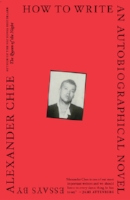Retro Review: The Queen of the Night
/When I started this blog, I had been posting reviews on Goodreads for about 6 months. In the interest of having all of my book writing in one place, I will post one of these old reviews every Friday. They weren't written with a blog in mind, so please forgive the lack of summary and off-the-cuff tone.
5 stars. I savored this. I bathed in the words. I was unsettled and entranced and deeply, deeply inspired; a testament to Alexander Chee's unapologetic, romantic world. His fluid, dream-like words mingle in rich, dramatic ways. His portrait of the time is immersive and researched and, though filled with much sorrow and hardship, glitters with magic. Chee seduces with twinkly lights, dazzling dresses, stories and songs and all things that sparkle and glow next to all things rough and grotesque.
There are encounters with women and men and music and death and fear and true, true hunger. It's not a coming-of-age story in the typical sense, despite the lessons learned. Uniquely, Lilliet's identity - her intentions for herself, her obligations to herself - seem very intact from the beginning. She doesn't just tell her story, she muses and wonders and wanders and lets things percolate. And so we escape into her journey - the spectacular, unimaginable journey of a woman surviving in the heart of a spectacular, unimaginable time.
Chee has a talent for capturing emotions for which there are no words. I admired this book the second the main character's dress turned against her, which is to say, immediately. Never have I seen that specific emotion described so beautifully. It's an emotion I don't think I've ever even acknowledged in a tangible way, to myself. The emotion you experience when you realize you don't look like you thought you did. Shudder.
And there is much to say about men.
"In this world, some time ago, far past anyone's remembering, women as a kind had done something so terrible, so awful, so fantastically cruel that they and their daughters and their daughters' daughters were forever beyond forgiveness until the end of time - unforgiving, distrusted, enslaved, made to suffer for the least offenses committed against any man. What was remembered were the terms of our survival as a class: We were to be docile, beautiful, uncomplaining, pure, and failing that at the least useful return we might be allowed something like a long life. But if we were not any of these things, but a man's reckoning, or if perchance we violated their sense of that pact, we would have no protection whatsoever and were to be treated worse than any wild dog or lame horse."
There are some aspects I didn't like: the flashbacks, the foreshadowing, the cliffhangers, the smirky way certain details were included (or not included, like the tenor’s name). The timeline was a bit confusing, or self-indulgent, or far-fetched, even absurd - although that may have been intentional, to demonstrate the swirly-whirly nature of time and place and memory. Lilliet seems oddly distanced from her story, at times, as though she's telling it from a separate space, from a different perspective, completely removed.
There's also an interesting exploration of choice and fate, sort of a cage match between "our fate is sealed" and "we seal our own fates." I had a visceral reaction to our protagonist's sense of entitlement and could not relate to her expectation of a free pass. I admired her refusal to accept anything less than her desires, and of course I appreciate that she lived in a world designed to limit her, but life is difficult for everyone. Sometimes, you just can't escape. You must face consequences, you must resist the temptation to run. All that being said, the last few lines of the book call into question my resentment and demonstrate Lilliet's previously hidden level of self-awareness and regret. Noted: "And the gods did not kill for hubris-for hubris, they let you live long enough to learn."
Complaints aside, the power of an incredible historical fiction novel is, for me, unveiled in the pathways I pursue upon finishing it. The Queen of the Night, which is full, decadent, lush and perhaps excessive at times, did inspire me to seek out more. I listened to Chopin, researched the plots of operas and read biographies of the players who made an appearance. I found myself wishing for an illustrated version, or a guide of commentary to which I could refer and compare and explore. Finishing Lilliet's story did not mean I was done with her world.
I realize it's melodramatic and intricate and perhaps it is easy to grow tired of the victory, defeat, victory, defeat, victory, defeat. But ultimately I didn't mind the melodrama because the writing was so thoroughly badass; that specific type of badass I would use to describe an orchestra, or flan, or the word "cornucopia." 5 stars for this book and may we bask in its glow forever.










